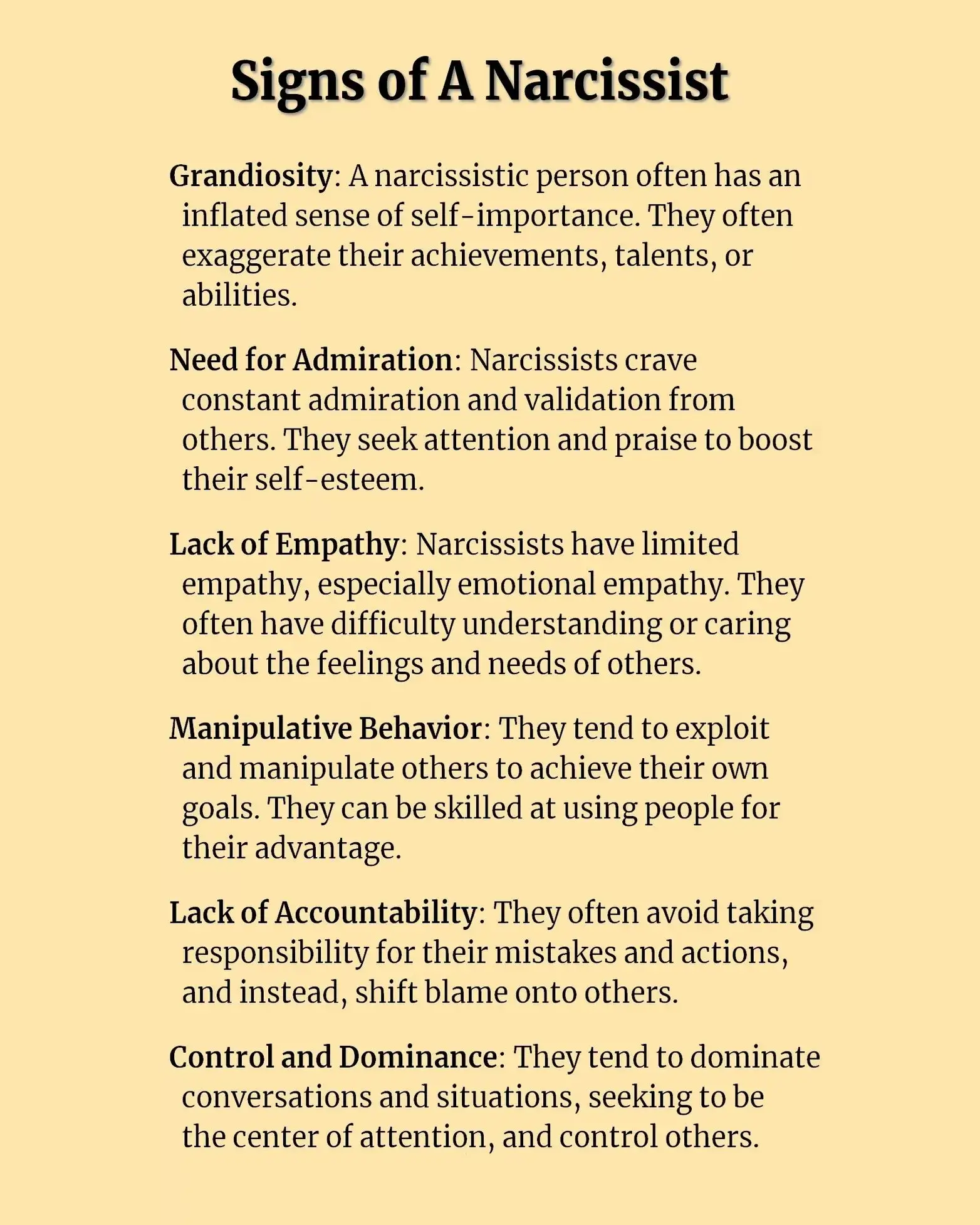Today's Thursday • 9 mins read
— By Dr. Sandip Roy.
Living with a narcissistic husband can be indescribably difficult.
The mildest of their abuse is making their wives feel lonely and unloved. The severe parts are:
- Getting furious and abusive without any warning.
- Telling you that you and your achievements are worthless.
- Making you believe that you deserve to be punished by them.
You often wonder why you’re stuck with such a volatile person. You often question yourself if you are going insane.
Male narcissistic husbands can be especially dangerous, giving long-term physical and emotional scars to their wives.
There is no cure for dark personality disorders like narcissism and psychopathy. So don’t live under the misbelief that your love can cure them.
- They are emotionally distant and self-directed when connecting with you.
- They violate your boundaries and personal space, acting entitled to do so.
- They don’t apologize, or offer insincere, performative apologies, for their mistakes.
- They can’t genuinely reciprocate love or vulnerability; interactions feel transactional.
It’s time you learned to recognize these signs in your narcissistic husband or male partner.
10 Signs of A Narcissistic Husband Or Male Partner
1. They Can Get Hostile To Manipulate You.
Male narcissists mostly marry someone they can keep under their control. They will use many of their manipulation tactics, starting with excessive showering of love.
Then they use gaslighting, constant criticism, guilt-tripping, and blame-shifting.
When you resist or react to their insults, they can become hostile to an extent you never expected.
A hostile narcissist is a frustrated-angry person who has failed at their attempts to control you. So verbal or physical aggression becomes their next resort.

Even when they have not used any physical force on you, there is this constant feeling that something bad might happen at any time. It’s called walking on eggshells.
- You tiptoe around topics that might set them off, constantly monitoring your words.
- You minimize your needs because bringing them up invites criticism or dismissal.
- Their reactions feel unpredictable, so you censor honest feelings to keep peace.
- Small mistakes become dramas; you over-apologize to avoid escalation.
- You plan your interactions to avoid triggers instead of being yourself.
- Over time, you lose confidence and second‑guess normal responses.
Why narcissists keep you on the edge? Because when you are under constant high stress, you try to survive in the relationship by keeping the narcissist pleased.
2. They Always Show A Sense of Entitlement.
Entitlement means the perceived right to have something. Narcissists believe they are special and therefore entitled to special treatment.
These husbands think their wives should treat them like royalty and put their own needs ahead of theirs.
They expect unquestioning compliance with their demands and expectations. And get upset if they feel their wife or children haven’t respected them in any way.
They may also struggle with boundaries, feeling entitled to do whatever they want without considering their partner’s feelings.
This sense of entitlement often manifests in manipulative behaviors that can have a significant impact on the spouse and the relationship.
3. They Lack Empathy (But Fake Being Empathetic).
A narcissistic husband finds it difficult to understand the feelings of his wife, even when she shares her concerns.
He isn’t too concerned with his wife’s problems and doesn’t want to take care of her physical and emotional needs.
If you notice, such a person also does not share his vulnerabilities, losses, and acts of stupidity with his closest ones. He feels it would be like giving them the ammunition to use against him in the future.
This lack of empathy can lead to insensitive behavior and difficulty forming meaningful, emotional connections.
It’s more than just being out of touch; it’s a fundamental inability to recognize and respond to the feelings and needs of others, especially their wife.
This emotional void can create a cold and distant relationship where the wife feels unheard and unimportant.
Over time, the lack of empathy can erode trust and mutual respect, leading to a breakdown in communication and intimacy within the marriage.

4. They Exploit Others (And You) For Personal Gain.
Narcissistic husbands often manipulate their wives to get what they want, viewing them more as a means to an end rather than a partner to be cherished.
They may use emotional blackmail, gaslighting, or other tactics to control their wife, bending her will to meet their own needs and desires.
This can include exploiting her emotions, finances, or even her relationships with friends and family.
They may also try to isolate their spouse from friends and family, making it harder for her to leave the relationship or seek support.
This isolation is often a calculated move to increase dependence and make the wife feel trapped.
The exploitation of others for personal gain is not just a one-time event; it’s a consistent pattern.
It reveals their lack of empathy and a willingness to put personal gain above the well-being of others, especially the wife.
It’s a red flag of a narcissistic husband and a clear pointer that the marriage is unhealthy and damaging.
5. They Have An Unrealistic Sense of Self-Importance.
Narcissistic husbands have a grandiose view of themselves.
They see themselves as superior and believe they are unique and special.
This exaggerated sense of self-importance often leads to arrogance and a disregard for the feelings and needs of others.
They are self-centered, entitled, lack empathy, and have a grandiose view of themselves.
These traits often manifest in manipulative behaviors that can have a significant impact on the spouse and the relationship.
6. They Fantasize About Being Successful & Powerful.
Narcissistic husbands often fantasize about achieving great success, having immense power, or being exceptionally attractive.
These fantasies can be so consuming that they lose touch with reality. It’s not just daydreaming; these fantasies can become a central part of their identity and how they present themselves to the world.
They may expect their wife to support and even participate in these illusions, leading to unrealistic expectations and demands within the relationship.
If challenged or faced with reality, they may react with anger or denial, refusing to acknowledge any gap between their fantasies and real life.
This preoccupation can create a disconnect with those around them, including their wife, and lead to dissatisfaction and frustration within the marriage.
7. They Are Envious/Jealous of Others (Even You).
Narcissistic husbands often feel envious when others achieve success or receive attention, including their own wives.
They may become resentful or try to undermine others’ achievements.
This envy can show itself as indirect hostile remarks, attempts to belittle the achievements of others, or even outright hostile behavior.
They also feel threatened by their wife’s friendships or personal achievements, not just by her professional or material success.
This behavior can create tension and dispute within the relationship, making it challenging to celebrate successes openly and honestly.
8. They Always Seek Admiration & Validation.
A narcissistic husband is constantly in search of validation and praise from others.
They feed off compliments and can become upset or even angry when they don’t receive the admiration they believe they deserve.
This relentless need for attention and validation can leave you, as their spouse, feeling neglected and unimportant.
It’s like walking on eggshells, never knowing what might trigger your partner’s anger next.
This constant state of tension can lead to anxiety, depression, and other mental health issues.
9. They Lie Frequently, Reasonlessly.
Narcissistic husbands may frequently lie or exaggerate to make themselves appear better or more important. They may also lie to manipulate situations in their favor.
These lies can range from small embellishments to significant deceptions and are often aimed at maintaining a certain image or control within the relationship.
The lying might extend to their interactions with friends, family, or colleagues, creating a web of deceit that can become difficult to maintain.
Over time, this pattern of dishonesty can erode trust and create a profound disconnect between the husband and wife, leading to a strained and unhealthy relationship.
10. They Cannot Easily Handle Criticism.
Narcissistic husbands often react poorly to criticism. They may become angry, defensive, or even aggressive when their flaws are pointed out.
Being married to a narcissistic husband can be emotionally draining.
Narcissist husbands drain you emotionally, mentally, and even physically.
“Narcissists are like vampires. They need to feed off of your energy,” says Dr. Ramani Durvasula, a clinical psychologist, professor of psychology, media expert, and author.
If you notice any of these signs in your husband, it is important to seek help and support.
A narcissist would rather decimate a crocodile than apologize.
How To Deal With Your Narcissistic Husband
- Prioritize Self-Care: Make self-care a priority. Focus more on your own needs and mental well-being than on your male partner’s.
- Talk To Your Supporters: Reach out to friends, family, or abuse-recovery groups for emotional support, especially if you are fully dependent on your abusive husband.
- Set Boundaries: Identify and write down your boundaries. Then inform your husband, making sure they understand and agree. Learn how to set boundaries.
- Be Assertive: Work on your self-confidence. Be assertive and firm when speaking with your husband. Express your needs and wants. Courage is not being unafraid, but taking action despite being afraid.
- Avoid Power Struggles: Don’t engage him in arguments or power struggles. Don’t give him a chance to trigger you into disputes.
- Seek Professional Help: Stay watchful of your emotional well-being. Talk to a mental health professional about how to deal with the challenges of narcissistic relationships.
Final Words
Four main issues with narcissistic husbands and male partners are:
- They don’t apologize (or give fake apologies) for their mistakes.
- They are mostly robotic in connecting with their partner on an emotional level.
- They violate their wives’ boundaries and personal space, feeling entitled to do so.
- They can’t reciprocate love, intimacy, and vulnerability in a non-transactional manner.
As their wife, try to look after your emotional health. Don’t cut ties with people who love and support you. Save money (whether you have a job or not) to sustain yourself if they are to abandon you.
√ Also Read: How To Break A Trauma Bond With Your Narcissist?
√ Please share this with someone.
» You deserve happiness! Choosing therapy could be your best decision.
...
• Disclosure: Buying via our links earns us a small commission.

